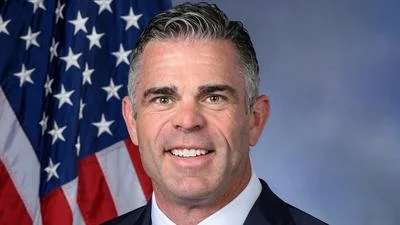Joel Kitchens, Wisconsin State Representative for 1st District | www.facebook.com
Joel Kitchens, Wisconsin State Representative for 1st District | www.facebook.com
According to the Wisconsin State Legislature's official website, the bill was described as follows: "a virtual reality technology pilot program for school districts. (FE)".
The following is our breakdown, based on the actual bill text, and may include interpretation to clarify its provisions.
In essence, this bill mandates the Department of Public Instruction to implement a pilot program to introduce a virtual reality (VR) technology program across three selected school districts in Wisconsin—one rural, one suburban, and one urban. The chosen entity will provide VR technology to at least 16,000 students and supply no fewer than 3,200 VR headsets. The program's curricula must align with the state's academic standards for math and science for grades 6-12, showing improvements in Algebra 1 assessments through research-verified methods. Additionally, it offers real-world problem immersion, career relevance, and multimodal learning experiences focusing on STEM education. The Department will provide math instructors with classroom-based coaching and training on leveraging VR tools effectively. Monthly reports on program implementation and progress will be submitted to legislative education committees.
The bill was co-authored by Sen. Dan Feyen (Republican-20th District), Rep. Rob Kreibich (Republican-28th District), and Rep. Jerry L. O'Connor (Republican-60th District).
Joel Kitchens has co-authored or authored another 62 bills since the beginning of the 2025 session, with none of them being enacted.
Kitches graduated from Ohio State University in 1979 with a BS.
Kitchens, a Republican, was elected to the Wisconsin State Assembly in 2015 to represent the state's 1st Assembly district, replacing previous state representative Garey Bies.
In Wisconsin, the legislative process starts when a senator, constituent, group, or agency proposes an idea for a bill. After drafting, the bill is introduced, numbered, and referred to a committee for review and public input. If approved, it moves through three readings and votes in both the Senate and Assembly. Once both chambers pass the same version, the bill goes to the governor, who can sign it, veto it, or let it become law without a signature. Only a small share of bills introduced each session ultimately become law. You can learn more about the Wisconsin legislative process here.
| Bill Number | Date Introduced | Short Description |
|---|---|---|
| AB364 | 07/17/2025 | A virtual reality technology pilot program for school districts. (FE) |
| AB292 | 05/30/2025 | The use of artificial intelligence or other machine assisted translation in court proceedings and of telephone or live audiovisual interpretation in criminal trials. (FE) |
| AB279 | 05/30/2025 | Talent recruitment grants. (FE) |
| AB196 | 04/15/2025 | Rehired annuitants in the Wisconsin Retirement System. (FE) |
| AB185 | 04/15/2025 | Property tax exemption for nonprofit theaters. (FE) |
| AB159 | 04/02/2025 | Creating a rural creative economy development grant program. (FE) |
| AB119 | 03/11/2025 | Transfer of nursing home beds |
| AB90 | 02/28/2025 | Copies of and inspection or disclosure of information contained in certain vital records. (FE) |
| AB79 | 02/28/2025 | Prosecuting or adjudicating delinquent a person under the age of 18 for committing an act of prostitution |
| AB43 | 02/17/2025 | Permitting pharmacists to prescribe certain contraceptives, extending the time limit for emergency rule procedures, providing an exemption from emergency rule procedures, granting rule-making authority, and providing a penalty. (FE) |
| AB2 | 02/03/2025 | Requiring school boards to adopt policies to prohibit the use of wireless communication devices during instructional time |






 Alerts Sign-up
Alerts Sign-up